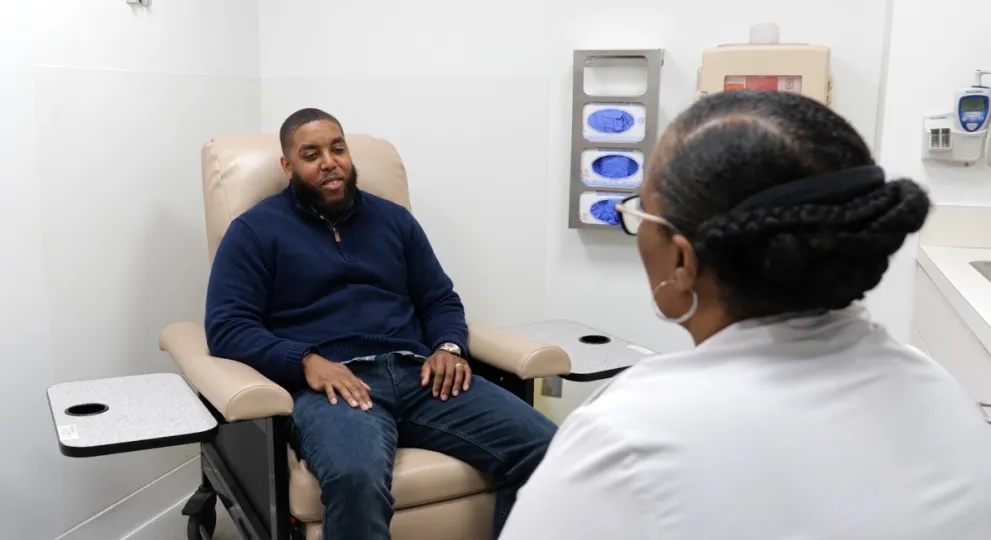Prostate Cancer Cleveland Clinic Foundation video
Prostate Cancer Cleveland Clinic Foundation video
What is prostate cancer?
Prostate cancer is a condition in which biological males can develop abnormal cells in the prostate, which is a gland that exists right beneath the bladder. These abnormal cells can spread to other parts of the body if not detected early.
What causes prostate cancer?
It is not known the direct cause of prostate cancers, but we do know that there are people who have risk factors for developing prostate cancer, particularly age, family history, ethnicity and some genetic abnormalities, which are infrequent but are associated with prostate cancer.
What signs and symptoms should I look out for?
One of the main problems is that it doesn't cause any symptoms. That is why we request people to go and see the urologist or see the family doctors just for a check and make early detection of the disease.
What is the process for getting screened?
The process for getting screened is a combination of a blood test as well as a physical examination of the prostate.
How early can I get screened for prostate cancer?
We begin to look for prostate cancer at the age of 50. However, in those men who are at high risk, and that would be men of African American descent or men who have a primary relative, such as a father or brother who've had prostate cancer, we’ll begin looking earlier between the ages of 40 and 45.
How often should you be screened for prostate cancer?
Well, there has been a lot of changes over the last years about the frequency with which we need to screen patients for early detection of prostate cancer. But roughly every one to two years is the recommended period of time, it's the recommended frequency. And that is something we tailor according to the patient characteristics, according to the PSA value, according to the age of the patient, according to the family history, or the presence of any other risk factor. One in eight men will experience prostate cancer in their lifetime. With early screening, with PSA and potential rectal screening, they will have up to 100% survival at five years. Without knowing you have symptoms, without knowing what to look for yourself, it's important that you talk to your healthcare provider to have access to the screening that's available.










